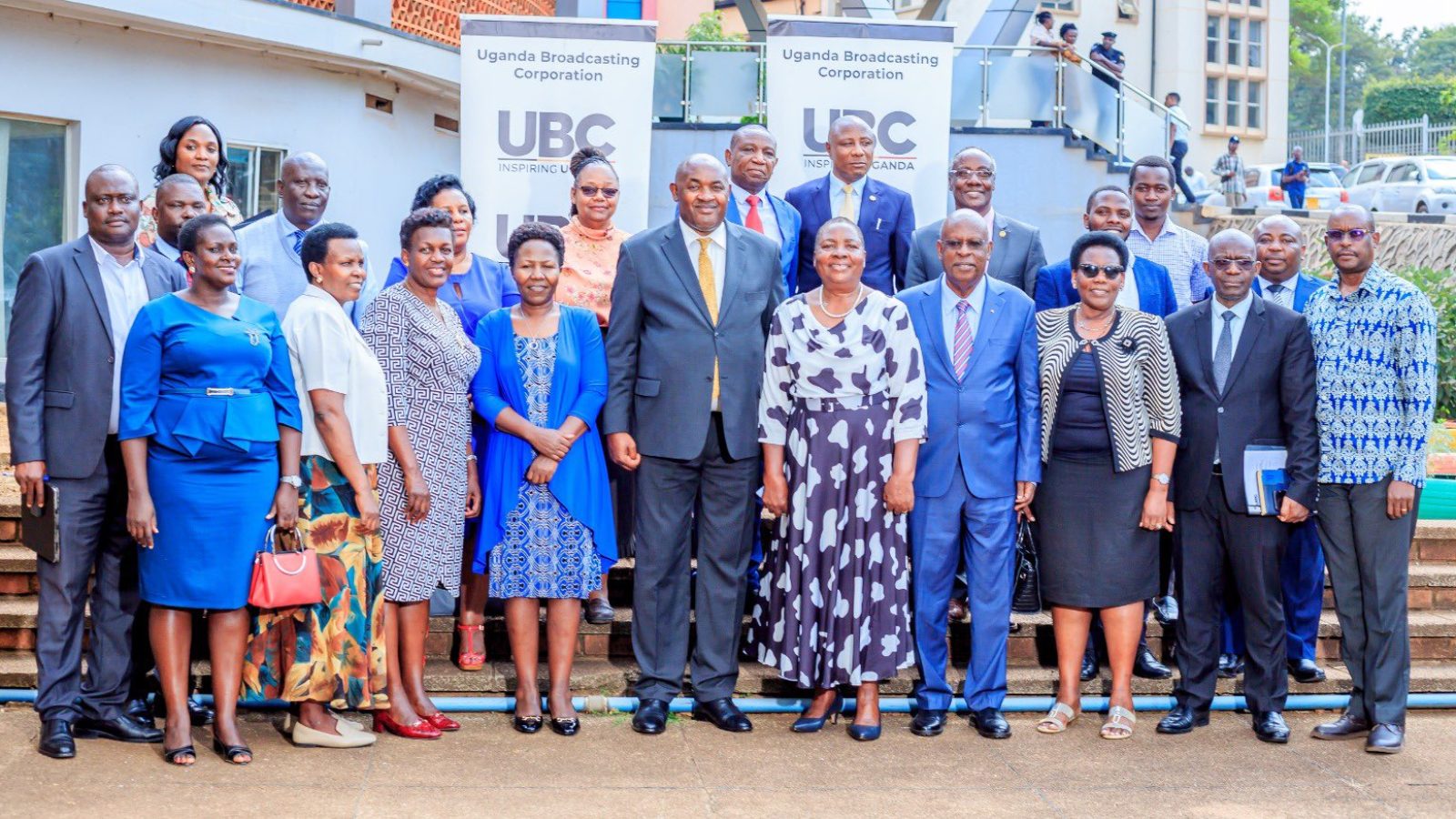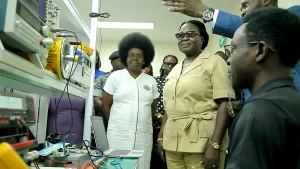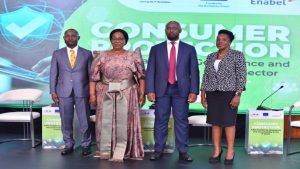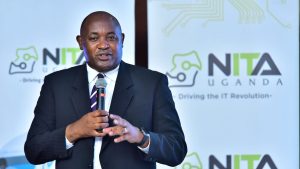Share
Dr. Chris Baryomunsi, the Minister for ICT and National Guidance, has underlined that the high cost of internet and the outrageous costs associated with buying smart gadgets, like phones, remain to be barriers to Uganda’s digital transformation.
During his impassioned speech at the 67th African Advanced Level Telecommunications Institute (AFRALTI) conference at the Imperial Golf View Hotel in Entebbe, Dr. Baryomunsi revealed this startling discovery.
He was surrounded by notable figures from the tech industry and served as a ray of hope amid the growing chaos surrounding Uganda’s digital predicament.

Dr. Baryomunsi weaved a vivid picture of Uganda’s trek through the digital wilderness with the seriousness of a prophet. His voice was a symphony of conviction that reflected the victories and setbacks of a country on the verge of change.
He told the story of connectivity from the dusty savannas to the busy cities, crafting a picture of advancement tainted by the barriers of unachievability.
“We have made progress in utilizing technology, and I’m sure Ugandans see that things are different now than they were ten or so years ago. With the passion of a revolutionary, Dr. Baryomunsi remarked, “We have addressed issues of connectivity and extending internet to various parts of the country but there are a few challenges like the cost of smart devices like smart phones, iPads, and laptops which is still prohibitive for some sections of society.”
He dissected Uganda’s digital paradox, revealing the gap between accessibility and aspiration with every utterance.
However, Nyombi Thembo, the Executive Director of the Uganda Communications Commission (UCC), joined the chorus of opposition during the passionate speech. He criticized the soaring monolith of internet fees with a steely conviction, analyzing the financial complexities that hampered Uganda’s digital progress.
Thembo said with outraged eyes, “The cost of internet, a Gordian knot strangling our aspirations, is a testament to the paradox of progress.” He explained the paradox of technological advancement, where the economic realities of accessibility collided with an insatiable need for innovation.
As the chorus of complaints intensified, Dr. Baryomunsi revealed the government’s toolkit in this fight for digital liberation.
With the methodical attention to detail of a strategist, he delineated tax breaks and incentives designed to promote domestic production of smart gadgets. His remarks sparked hope in the midst of sorrow and gave a country that yearned to be included in the digital age new life.
However, amid the chaos, a glimmer of optimism appeared. A new phase in Uganda’s pursuit of digital sovereignty was promised with its elevation to the chairmanship of AFRALTI’s governing council.
Now that he was in charge, Thembo promised to take the team into unknown waters while putting a fresh emphasis on developing data analytics capabilities.
Uganda found itself at a crossroads as the dramatic story came to a close, struggling to face the ghosts of its technical past while navigating an uncertain future.
Driven by the unwavering spirit of progress, a nation forged its destiny in the furnace of hardship.












